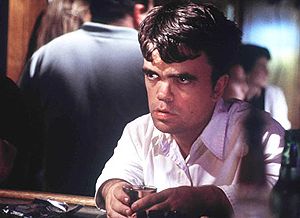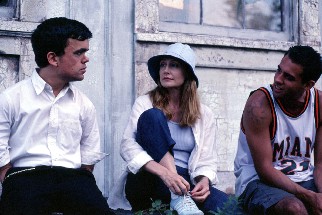What did you think of the parents and the parental themes in this movie?
Scott, like Shakespeare's Prince Hal with Falstaff, touts Bob as his true spiritual father; he denounces his real father but nevertheless accepts his financial inheritance. Mike's father has nothing to offer him, either spiritually or financially.
I love that Van Sant turns the typical Odyssean father quest into a mother quest for Mike. He seems to idealize her, even though it's not really clear why — he appears to have faith in the solidity and permanence of the parent-child bond, as we all probably do, even when it's clear that the bond has been shattered or never really existed in the first place.
Mike talks about how he might have been "normal" if his family had been normal. And Scott asks, "What's normal?"
And then there are the street kids who seem parentless, familyless, except for Bob and one another.
There seems to be a theme that, despite your actual blood relations and the things they give you or fail to give you, "what thou lovest well is thy true heritage." In other words, for a lot of people, especially outsider-types or people who weren't raised by June and Ward Cleaver, whatever love and comfort they eke out of life will be what they have managed to forge on their own.




.jpg)





